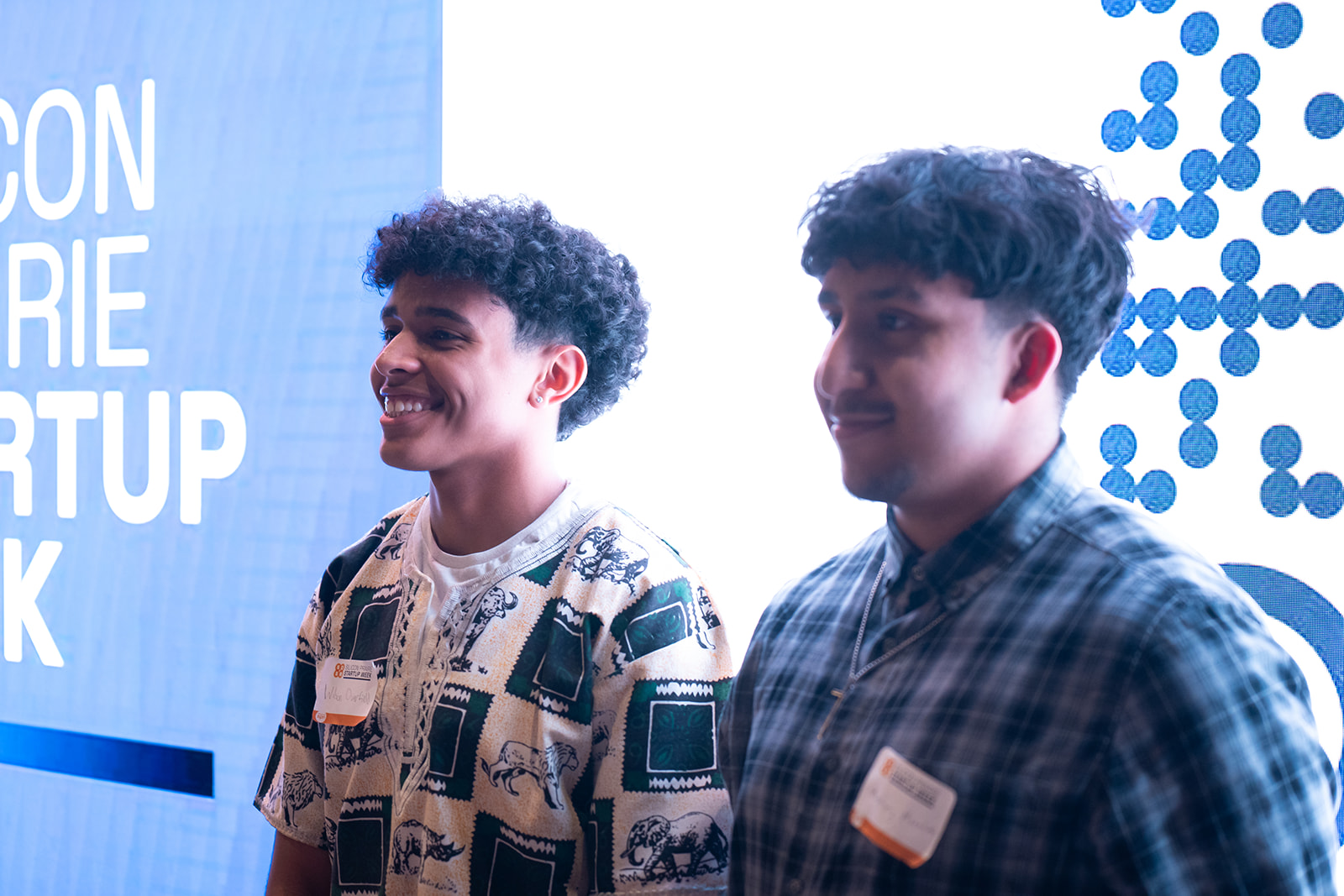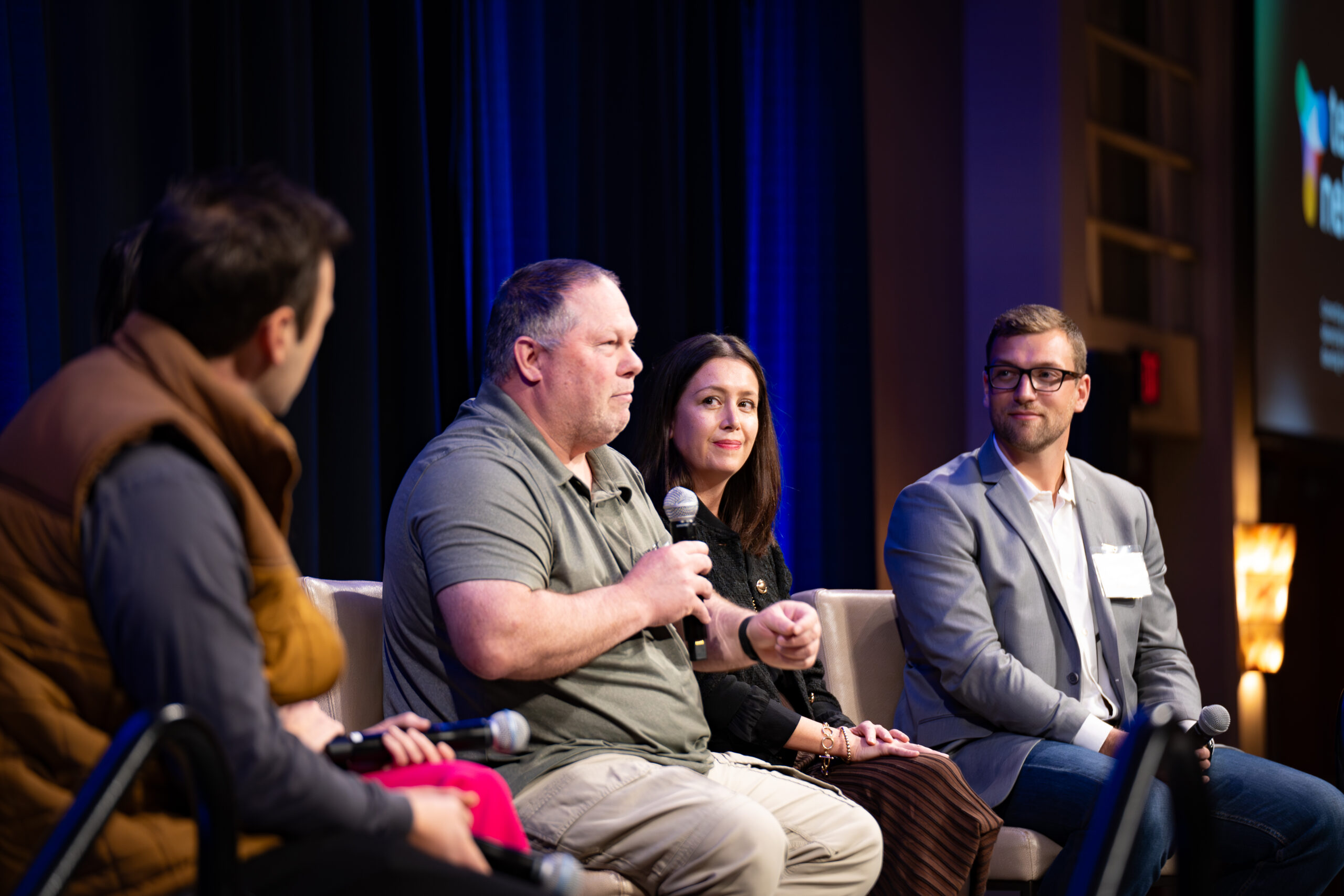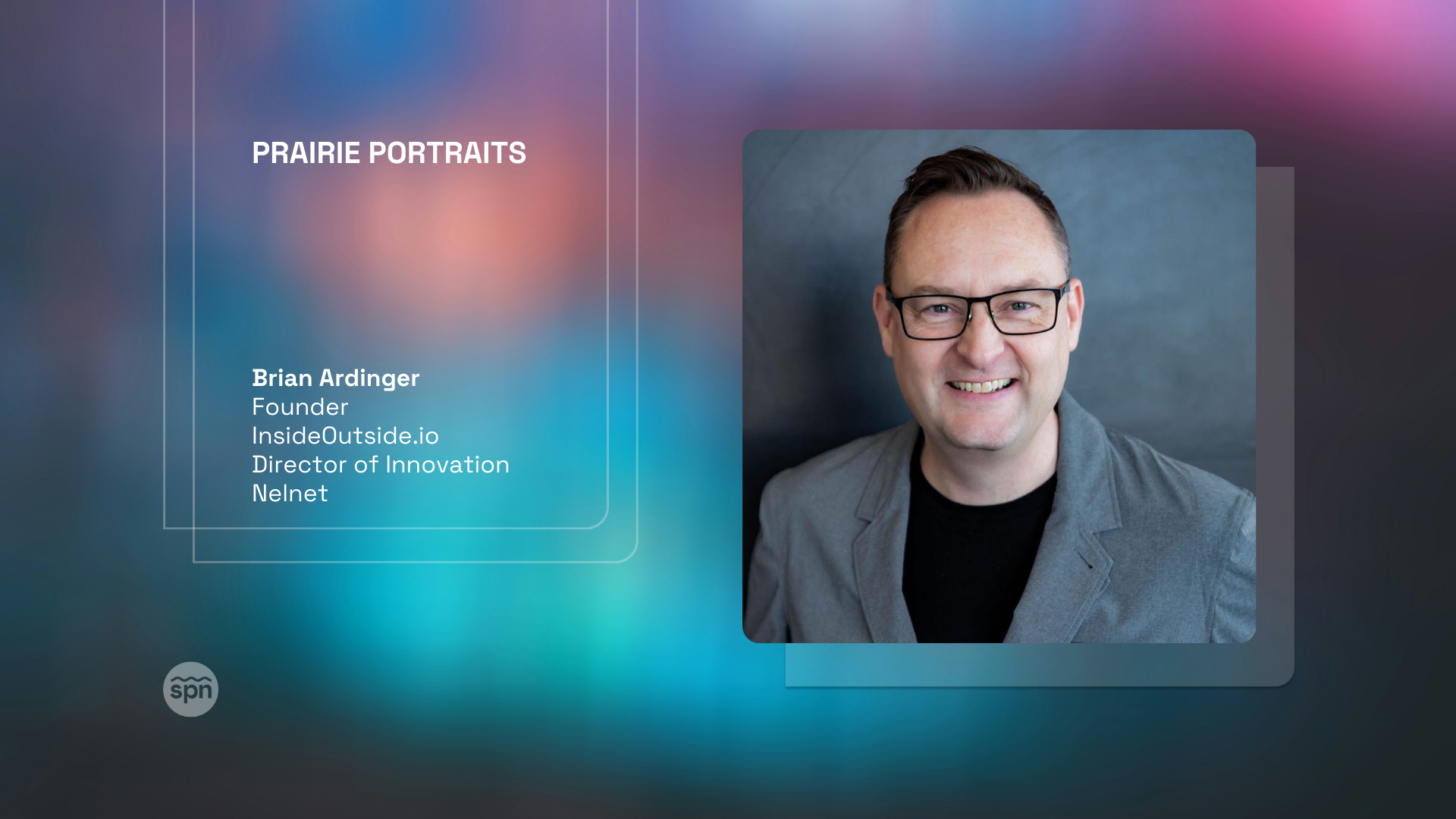
Venture capitalist and author Brad Feld speaks at Thinc Iowa 2012.
Brad Feld believes that a thriving startup community can exist anywhere in the world.
“There’s a startup revolution going on in our society right now, and I think everyone in this room is a part of it,” Feld said at Thinc Iowa 2012 today.
Feld, the a co-founder of venture capital firm Foundry Group and startup accelerator TechStars, among other business ventures, recently released a book focused on one part of this revolution. “Startup Communities: Building an Entrepreneur Ecosystem in Your City” presents what Feld calls the “Boulder Thesis” – four essentials that need to be present to sustain a successful startup community.
At today’s event held in the The Temple for Performing Arts, Feld spoke about each of these essentials.
The “Boulder Thesis”
1. Entrepreneur lead
Feld said there are two types of people in the startup community — leaders and feeders. The leaders of the community are (and must be) entrepreneurs. Feeders include other players who participate in the startup community — people like lawyers, accountants and investors, and organizations like universities and governments. All these people are important, but for a successful startup environment to flourish, Feld said the entrepreneurs have to play the leadership roles.
“The critical mass doesn’t have to be 100 on day one — it can be five on day one. But those five have to commit,” Feld said.
2. A 20-year commitment
“The reason I say it’s a 20-year journey is because I think it is a generational phenomenon,” Feld said. “Actually, it’s 20 years from today. In a year, it’s still 20 years. In five years, it’s still 20 years. So the Boulder dynamic today is 20 years from now.”
He said the 20-year journey hinges on the cycles of the feeders — the non-entrepreneur players in the community.
“If you believe and accept that it’s something that builds over time, the only people that can really lead it over that period of time are the entrepreneurs who have lots of uncertainty in the life cycle of their company but can be committed to the community for a long period of time,” Feld said.
3. An inclusive community
It’s very easy to show up and get woven into the fabric of the community in Boulder, Feld said. As evidence of it’s welcoming spirit, he offered up his personal email address and an invitation to help audience members find their way around Boulder.
“There’s no vice president of membership and no vice president of education in the Boulder startup community,” Feld said. “It’s just this messy, sloppy thing where people connect with other people.” He said the attention to inclusiveness has to happen across the whole community.
4. All parts engaged
New entrepreneurs, veteran entrepreneurs, service providers, organizations and others need to be included. Feld challenged the audience to host activities that cater to them all.
“Having things that engage people and have them doing stuff is so much more powerful than having yet another cocktail party,” Feld said. He said celebrations are good, “but that’s not the sufficient condition. The sufficient condition is to get together and do stuff.”
He offered Startup Weekend as an example: “It’s an incredible simulation of entrepreneurship. For 54 hours, you get to spend time with other people who are interested in starting up a company,” Feld said. “And whether you’re an aspiring entrepreneur, a first-time entrepreneur or an experienced entrepreneur, the energy around it is incredible.”
More Feld thoughts
Startups are inverses of hierarchies
In industrial society during the turn of the century, Feld said the reasons for creating hierarchies were to control efficiency in a community’s workforce. And we still deal with hierarchies every day — government, militaries, and large companies, for example. The leaders are appointed and the control chain is top down.
“Startups are the inverse of that,” Feld said. “They’re networks, they’re chaos.” And even though startups have CEOs, their hierarchies are not constraining. “You don’t have to ask permission to interact with anybody else in this room,” Feld said. “You don’t have to ask permission to start something new. You don’t have to ask permission to start a new company.”
Give before you get
” ‘Give before you get’ is deeply woven into the ethos of the Boulder startup community,” Feld said.
He said there are two types of people helping entrepreneurs: mentors and advisors. A mentor asks “How can I be helpful to you?” And an advisor says “I’d be happy to be helpful for you if you pay me a thousand bucks a month.”
“The mentor has no expectation of what’s going to come back to him or her,” Feld said. “He’s just willing to help. He puts energy into the system … and the world of startup communities needs a lot more mentors.”
Startup communities anywhere
Feld ended with the idea that there can be startup communities anywhere. “Don’t hold yourself back with limiting behavior,” Feld said. “Don’t hold yourself back with words.”
He challenged the audience to turn negatives to positives and use those things as assets to move the community forward.
Credits: Photos by Anna Jones and Phillip Harder.
Thinc Iowa is a premiere event produced by Silicon Prairie News. For live video of Thinc Iowa 2012, tune in at spne.ws/live from 9 a.m.-5:30 p.m. Oct. 10 and 11. For more on Thinc Iowa, check out the conference on Twitter and Facebook.



